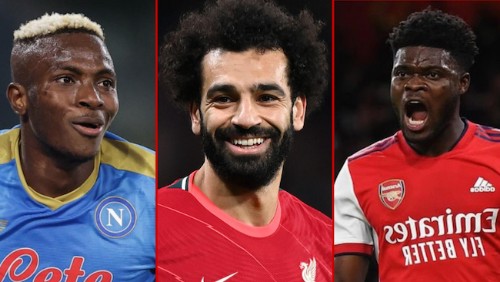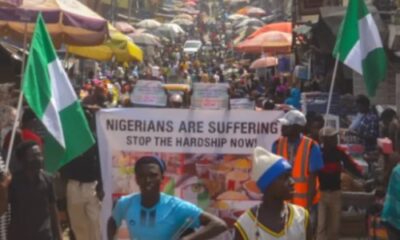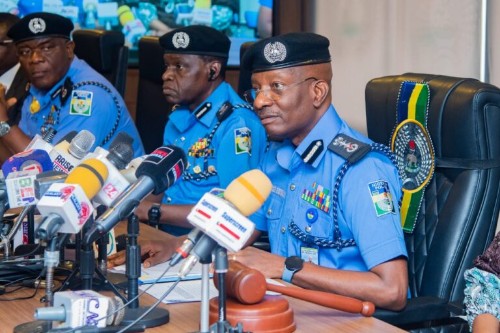The Confederation of African Football named Nigeria’s Victor Osimhen, Egypt’s Mohamed Salah, and 28 others as candidates for the 2023 men’s African Player of the Year awards on Wednesday.
CAF confirmed on their official website that the Gala awards will be hosted on December 11, 2023, in Marrakech, Morocco.
According to the statement, “A panel of CAF Technical Experts, African Football Legends, and selected media representatives from a number of countries put together the preliminary list for the various categories with the performance of the nominees between November 2022 and September 2023 serving as the period under consideration.
“Thirty (30) players made the cut for the top prize; CAF African Player of the Year, whilst 20 players have been nominated for the CAF Interclub Player of the Year. Coach of the Year, CAF National Team of the Year and Club of the Year have ten (10) nominees each just as CAF Young Player of the Year – for players under the age of 21.
“For the first time, CAF has introduced the CAF African Goalkeeper of the Year Category (Men and Women) in the prestigious event that seeks to reward and celebrate exceptional Players, Officials and Administrators during the period under review.
“It will be the first time that shot stoppers will be acknowledged for their performances, further expanding the network of winners for the annual event. 10 players have been nominated for the novel award.
CAF maintained that the ultimate winner of each category will be decided after votes from a voting panel consisting of the CAF Technical Committee, media professionals, Head Coaches and captains of Member Associations and clubs involved in the group stages of the Interclub competitions.
It further added that the nominees for the Women’s categories will be announced in due course.
Recall that Senegal forward Sadio Mane was crowned CAF African Player of the Year whilst Nigeria’s Asisat Oshoala was coronated CAF African Women’s Player of the Year for a record fifth time during the last Awards Gala in July 2022 in Rabat, Morocco.
Full List of Nominees (in alphabetic order by Member Association):
Player of the Year (Men)
1. Ramy Bensebaini (Algeria and Borussia Dortmund)
2. Riyad Mahrez (Algeria and Al Ahli)
3. Edmond Tapsoba (Burkina Faso and Bayer Leverkusen)
4. Andre-Frank Zambo Anguissa (Cameroon and SSC Napoli)
5. Vincent Aboubacar (Cameroon and Besiktas)
6. Ibrahima Sangare (Cote d’Ivoire and Nottingham Forest)
7. Seko Fofana (Cote d’Ivoire and Al Nassr)
8. Chancel Mbemba (DR Congo and Olympique Marseille)
9. Fiston Mayele (DR Congo and Pyramids)
10. Mahmoud Abdel Moneim “Kahraba” (Egypt and Ahly)
11. Mohamed Abdelmonem (Egypt and Al Ahly)
12. Mohamed ElShenawy (Egypt and Al Ahly)
13. Mohamed Salah (Egypt and Liverpool)
14. Mohammed Kudus (Ghana and West Ham United)
15. Thomas Partey (Ghana and Arsenal)
16. Serhou Guirassy (Guinea and VfB Stuttgart)
17. Yves Bissouma (Mali and Tottenham Hotspur)
18. Achraf Hakimi (Morocco and Paris Saint-Germain)
19. Azzedine Ounahi (Morocco and Olympique Marseille)
20. Hakim Ziyech (Morocco and Galatasaray)
21. Sofyan Amrabat (Morocco and Manchester United)
22. Yahya Jabrane (Morocco and Wydad Athletic Club)
23. Yassine Bounou (Morocco and Al Hilal)
24. Youssef En-Nesyri (Morocco and Sevilla)
25. Peter Shalulile (Namibia and Mamelodi Sundowns)
26. Victor Osimhen (Nigeria and SSC Napoli)
27. Sadio Mane (Senegal and Al Nassr)
28. Pape Matar Sarr (Senegal and Tottenham Hotspur)
29. Percy Tau (South Africa and Al Ahly)
30. Mohamed Ali Ben Romdhane (Tunisia and Ferencvaros).
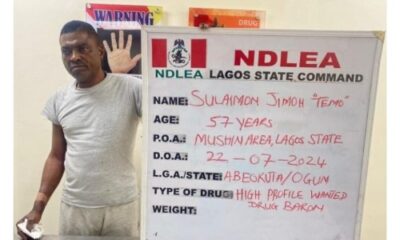
 BIG STORY3 days ago
BIG STORY3 days ago
 BIG STORY4 days ago
BIG STORY4 days ago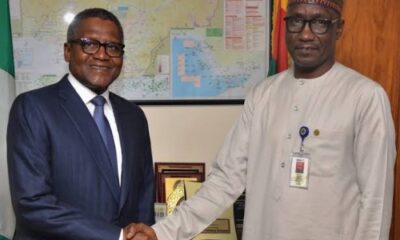
 BIG STORY4 days ago
BIG STORY4 days ago
 BIG STORY17 hours ago
BIG STORY17 hours ago
 BIG STORY3 hours ago
BIG STORY3 hours ago
 BIG STORY21 hours ago
BIG STORY21 hours ago
 BIG STORY5 days ago
BIG STORY5 days ago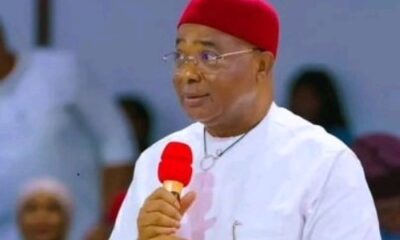
 BIG STORY2 days ago
BIG STORY2 days ago



